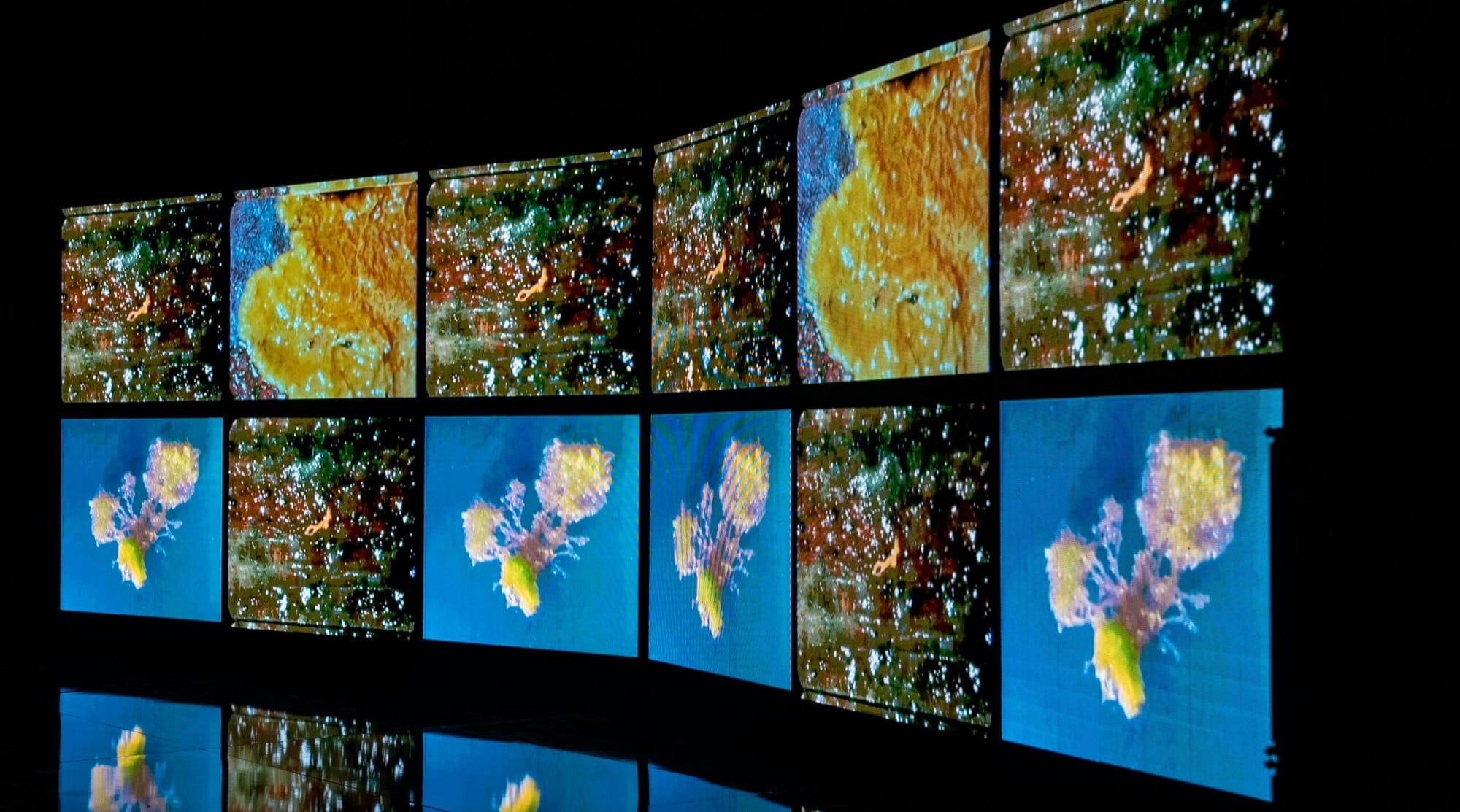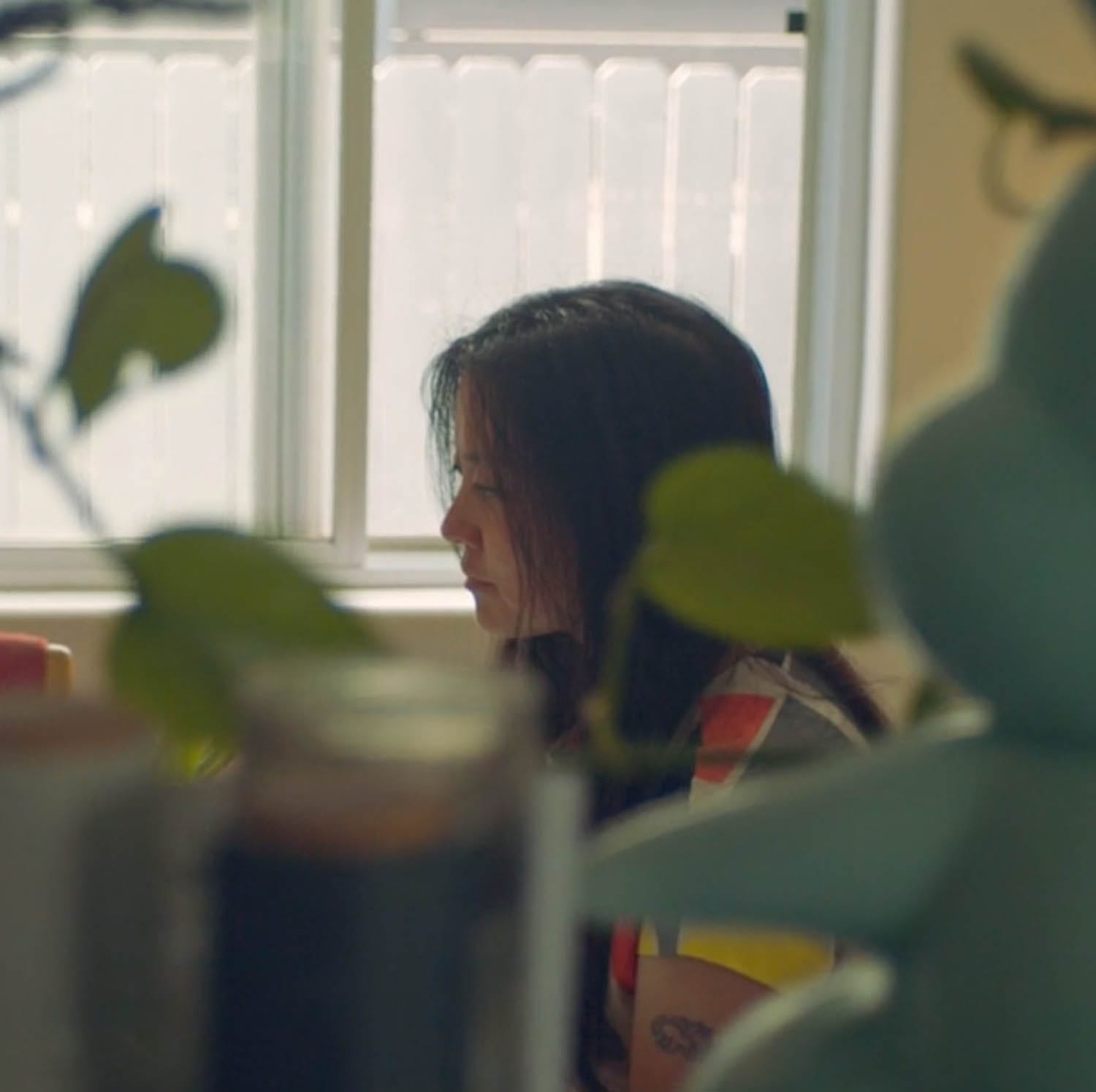How can art support nuanced methods of integrating, discovering, and learning from technology, to create beneficial futures for humans and beyond?
In exploration of this fundamental question, the Future Technê Salon Series at NeueHouse Hollywood assembled artists, writers, filmmakers, journalists, entrepreneurs, world-builders, and technologists and asked them to describe their versions of future technê,” i.e. a creative contribution through a technological imagination of a better world. Their answers explored embodied artificial intelligence, non-human cognition, and “beyond human” ways of being.
In ancient Greek, the term technê describes both theoretical knowledge and craft practices. Future Technê sparks conversations at the intersection of novel technologies, experimental modes of governance and inclusion, narrative world-building, and other creative practices that provoke futures we want to thrive in.
“Against the backdrop of an evolving biosphere, augmented and artificial information landscapes, and shifting social contracts due to ever-changing political and economic systems,” Webb and Brockett explain, “investigating future technês prompts partial answers to pressing questions of our time.”
The series was created and co-curated by Zandie Brockett 张桂才, Director of Community and Culture at NeueHouse, and Dr. Claire Isabel Webb director of the Future Humans theme at the Berggruen Institute.
Chapter I: Air Age Blueprint
March 15, 2023
K Allado-McDowell’s book Air Age Blueprint, co-written with GPT-3, explores the mixture of ancient healing traditions with computational technologies, creating portals to a new kind of techno-mysticism. For Chapter I of the Future Technê Salon Series, musical artist Armen Nalbandian on piano accompanied Allado-McDowell on gong in an improvisational performance in the echoic Bradbury Building’s atrium. The performance backdropped a reading from Air Age Blueprint. The discussion that followed touched on the dislocation of authorship with computational collaborators, AI-human creativity, and alternate cognitive states.
K. Allado-Mcdowell is a writer, speaker, and musician. They are the author, with GPT-3, of the books Pharmako-AI, Amor Cringe, and Air Age Blueprint, and are co-editor of The Atlas of Anomalous AI.
Armen Nalbandian is an independent composer and pianist whose practice focuses on the physics of improvisation through spontaneous composition in performance.
Chapter II: Ipseity
May 11, 2023
Do we need new gods? Spanish-American new media artist Enrique Agudo’s Ipseity is an installation of eight digital paintings that depict new deities and their environments. Inspired by the Pre-Raphaelites, a group of late 19th-century British painters who favored vivid colors and granular details, Agudo’s allegorical scenes explore humans’ relationship to new renditions and possibilities for deities of the future through digital painting.
In Chapter II of the Future Technê Salon Series, Agudo presented fantastical digital deities who both tap into our ancestral myths and help us reckon with contemporary concepts of gender, sexuality, and identity through technology and in a digital existence.
Watch the artist share his future technê in the video below.
Enrique Agudo’s work explores the limits of digital media using immersive and experimental digital media as the tools to question and challenge anthropological discourse around identity. Agudo is the Creative Director behind “The Pantheon of Queer Mythology,” a VR short film that had its virtual premiere at the Tribeca Film Festival 2020.
Chapter III: Narrating the Future
May 19, 2023
Stories about the past promulgate our future—but often in ways we least expect. Chapter III of the Future Technê Salon Series celebrated storytelling, myth-making, and a process of translation: between visual media, oral traditions, and written stories. Through a series of readings and conversation, the evening asked: How can animation and speculative fiction queer conceptions of self, time, and culture?
On May 19, 2023, writer-director Andrew Thomas Huang presented work from the photographic series, Immortal Hybrid that investigated “the idea of ancestry as a technology.” Writer Ken Liu explained why “Sci-Fi Writers are Bad at Imagining the Future.” In response, speculative fiction author Qiufan (Stanley Chen) 陈楸帆 read from his debut novel The Waste Tide, set in a near-future China that is haunted by electronic waste, the story reveals a metaphor of the trash-picking class as custodians of expanded notions of technology: a space between where science ends and magic begins. Zandie Brockett tied it all together with a discussion touching on the intersection of ancestry, new technologies, and stories that make us human.
Ken Liu is a Nebula, Hugo, and World Fantasy award winning author of the Dandelion Dynasty, a silkpunk epic fantasy series, The Paper Menagerie and Other Stories, and The Hidden Girl and Other Stories.
Qiufan Chen 陈楸帆 is an award-winning Chinese speculative fiction author. His works include the debut novel Waste Tide and AI 2041: Ten Visions for Our Future, co-authored with Dr. Kai-Fu Lee.
Andrew Thomas Huang is a writer-director crafting hybrid fantasy worlds and mythical dreamscapes. A Grammy-nominated music video director, Huang’s collaborators include Bjork, FKA Twigs, and Thom Yorke. His films have been commissioned by and exhibited at the Museum of Modern Art (New York), The Sydney Opera House, and the Museum of Contemporary Art (Los Angeles).
Chapter IV: Forming Intelligence
December 13, 2023
Against the backdrop of rapidly evolving AI technologies, Future Technê Summit: Forming Intelligence brought together artists, technologists, scholars, and industry leaders to unpack the philosophical and practical underpinnings of intelligence. How can we learn from existing forms of human and non-human intelligence? And how can we incorporate those ways of being into the shape of novel intelligences in the future?
We explored these questions through a series of performative lectures, thought-provoking panels, and an accompanying digital exhibition. The summit contemplated various technoscientific models for engaging with intelligent entities, from computational intelligences to Martian robots, to octopuses. Future Technê Summit: Forming Intelligence inspired us to consider how novel and legacy technologies are alternative frameworks for being, creating, and making communities of intelligence in the future.
The summit’s participants contemplated the following questions, and we invite you to do the same: What is the encoding of intelligence? What is intelligence and why does it matter? Can computers grow from soil? What does machine intelligence mean for human authenticity? How can we shape new planetary imaginaries? What are the different forms of intelligence necessary for survival? How can AI (artificial/alien intelligence) allow us to sense beyond our human capabilities?
Learn more about FUTURE TECHNÊ
To learn more about the FUTURE TECHNÊ series, please visit the Beggruen Institute for additional videos, interviews and highlights.
SUMMIT PARTICIPANTS
Christopher Kulendran Thomas (Artist), Claire L. Evans (Artist), edIT (Musician), Green-House (Musicians), Lake Hills (Musician), Liam Young (SciArc, Designer and Director), Mauhan Zonoozy (Spotify, Head of Innovation), Michael Connor (Rhizome, Co-Executive Director), Miriam Simun (Artist), Dave Flynt (Lucid Motors, Senior Director, UI/UX), Taylor Lorenz (The Washington Post, Journalist), Vandi Verma (NASA Jet Propulsion Laboratory, Principal Engineer and Deputy Section Manager for the Mobility & Robotics)
Co-Curators: Zandie Brockett (NeueHouse, Director of Community + Culture) and Claire Isabel Webb (Berggruen Institute, Associate Director of Future Humans)
BOOK FAIR
Future Technê Summit Book Fair is a celebration of books, zines, and original artworks, a curated collection of literature and printed design exploring art, technology, and the philosophy of futures-thinking. The book fair was a space of connection and conversation during the summit, serving as an embodied expansion of the summit’s integral questions around forms of intelligence.
The book fair was composed of esteemed local and international presses: Tomorrow Today, Special Effects, Co-Conspirator Press, X Artists’ Books, Martian Press, Anteism Press, Inventory Press, Ignota Press, Rhizome Publications, Berggruen Press, and Noema Magazine.
Curator: Ulysses Yarber (Berggruen Institute, Program Coordinator of Future Humans)
River, Like Ourselves: What is the Encoding of Intelligence?
The exhibition explored cellular, plant, human, urban, and planetary intelligence, examining the emergence of new complex systems resulting from mutation and hallucination. Four artworks depicting techno-systems at both micro and macro scales leveraged AI software to broaden conventional understandings of our biosphere – from riverways to mosaic exo-planetary systems.
Drawing upon regenerative, ancestral, land-generated, and time-based knowledge as the encoded parameters of these neural networked artworks, the emergent forms existing between biological and speculative realms sought to address the fundamental questions: What is intelligence? What insights can be gleaned from innate, ancestral, indigenous, planetary, and embodied modes of intelligence?
Artists: Alice Bucknell, Entangled Others (Feileacan Kirkbride McCormick and Sofia Crespo), Kira Xonorika, Yaloo Ji Yeon Lim
Co-Curators: Zandie Brockett x Alice Scope



